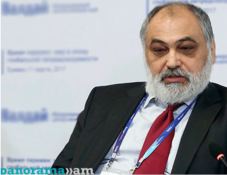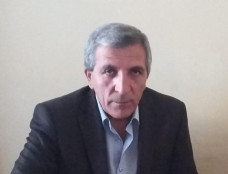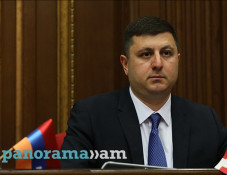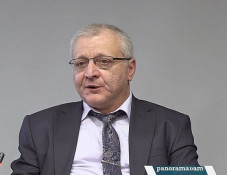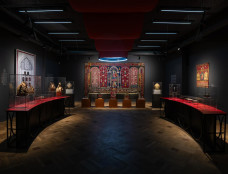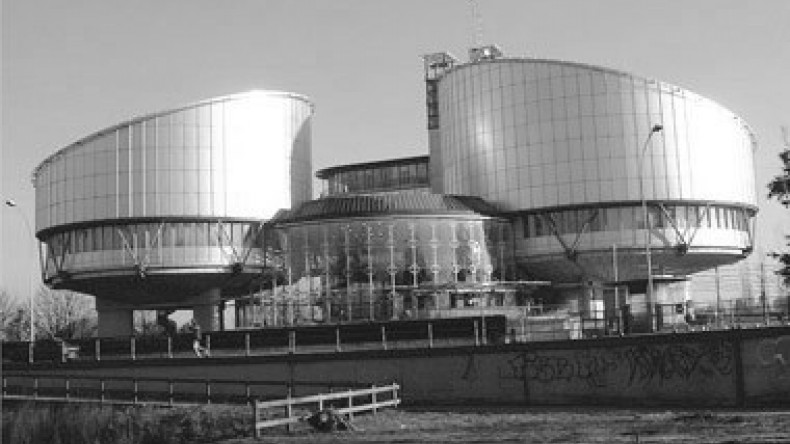
Artsakh issue at the European Court of Human Rights
First-ever hearings of complaints on cases related to the Karabakh-Azerbaijan conflict were held on September 15 in the European Court of Human Rights in Strasbourg. ECtHR Grand Chamber heard two cases – “Chiragov and others vs. Armenia” and “Sargsyan vs. Azerbaijan.” The verdict is set to be pronounced within a year.
Cases
Both complaints heard at ECtHR Grand Chamber related to ownership right of people as a result of the war. Azeri plaintiffs, 7 people, introduced themselves as Kurds. They said that before the war they lived in Lachin where they had property – apartment, car, etc. They had to leave their property as a result of the war, and now they have no prospect of possessing their property. The Azeri plaintiffs referred to European Convention on Human Rights Protocol 1 Article 1 (protection of property right), Article 8 (right to respect for private and family life), Article 13 (right to an effective remedy), and 14 (prohibition of discrimination).
The plaintiff in the case “Sargsyan vs. Azerbaijan,” Minas Sargsyan, is former resident of the village of Gyulistan, NKR Shahumyan region. According to the complaint filed in 2006, saying that he was forced to leave his native village and Azerbaijan rejected his demand to return home, Sargsyan litigated violations of European Convention on Human Rights Protocol 1 Article 1 (protection of property rights), Article 8 (right to respect for private and family life), and Article 13 (right to an effective remedy). Sargsyan also litigated violation of Convention’s Article 3 (prohibition of torture, and “inhuman or degrading treatment or punishment”) and violation of Articles 8 and 9 (right to freedom of thought, conscience and religion).
The Azerbaijani authorities destroyed Armenian cemeteries of Jugha and Baku. Referring to those facts the Armenian plaintiff expressed concern over possible vandalism in his native village resulting in loss of his relatives’ graves.
Trial
ECtHR Grand Chamber appointed hearings on both cases on the same day. The complaint of the Azeris was heard in the morning and Minas Sargsyan’s complaint after the midday.
ECtHR Grand Chamber whole staff participated in the trial. Representatives of Armenia and Azerbaijan, judges Alvina Gyulumyan and Khanlar Hajiyev were also present at the sitting. The court sitting was presided by French judge Jean-Paul Costa. Authoritative international lawyers M. Muller, M. Ivers, K. Wain, B. Poynor, K. Yildiz defended plaintiff’s interests on the first case.
Besides Azerbaijan’s representative in ECtHR, C. Askerov, leading specialist in public law M. Show, as well as G. Lanski, H. Treter, and O. Galadze defended the interests of Azerbaijan being the third party in the case.
The respondent party – Armenia, opposed to this group of “hireling” lawyers a team comprised of only Armenian specialists – representative of Armenia in ECtHR G. Kostanyan, Deputy Justice Minister E. Babayan, and lawyers S. Sahakyan and S. Avagyan.
During the hearing of the second case, G. Kostanyan, E. Babayan, S. Sahakyan and S. Avagyan again represented Armenia’s interests but as a third party. C. Askerov, M. Show, G. Lanski, H. Treter, and O. Galadze again represented Azerbaijan’s interests.
A team comprised of mainly Armenian lawyers represented Armenian plaintiff’s interests – lawyers N. Gasparyan, K. Ohanyan, A. Aloyan, and P. Lench. The trial was public. The parties presented their approaches, commentaries and arguments, and the judges asked questions and demanded explanations.
The public hearings in ECtHR were peculiar since before the hearings, the parties had expressed their written viewpoints and presented their arguments in the question and answer process with the governments.
Nevertheless, the trial was full of surprises. First, judges were expected to ask unexpected questions they had not asked before. Besides, public hearings implied emotional component, where the rhetoric skills of the parties are very important. Putting the cart before the horse, we must say that Armenian lawyers were very impressive, though their opponents were also very experienced.
Law and policy in ECtHR
It is beyond any doubt that both cases relate to violation of rights. On the other hand, it was clear for everybody that any question regarding citizens’ rights in countries having an active conflict would call forth political commentaries.
The European Court, in essence, had also understood it, choosing such “dossiers” among hundreds of cases that would allow both the parties and the court to manoeuvre. The complaint of the resident of Gyulistan village was chosen as the most convenient for bilateral manoeuvres (naturally, Azerbaijan could oppose nothing to the complaint of a citizen deported from Baku or Sumgayit). And in case of Azeris, they chose the case of Lachin Kurds, where both the addressee of the complaint – Armenia, and the discrimination element are vulnerable.
In both cases the legal component was connected with the military-political balance and status quo on the contact line.
The Armenian party, Republic of Armenia, brought forward two main assertions – a. NKR is not under Armenia’s jurisdiction, only NKR authorities exercise efficient control in NKR territory and its adjacent territories, thus Azerbaijani plaintiffs’ complaint against the Republic of Armenia is not subject of discussion at ECtHR, b. Azeris filed the complaint violating the six month rule envisaged by ECtHR regulations, thus the complaint is not subject of discussion at the court.
Armenia had presented hundreds of pages of substantiations, arguments and facts for its
assertions (panorama.am will present them later, in interviews with representatives of Armenia).
As to Azerbaijan’s counter-arguments, the approach is almost similar – a. violation of six month term, b. Gyulistan is on the contact line, and Azerbaijan does not exercise efficient control there. We will touch upon the arguments and counter-arguments in the future, since besides legal elements, they have a great political component.
Trial, court resolution and possible consequences
Both cases are politicized, it is beyond any doubt. And we can suppose that any resolution will be very cautious and balanced first of all not to damage the peaceful settlement. This circumstance was voiced at the court. The court inquired about possible impact of the trial on the peaceful resolution of the Nagorno Karabakh conflict. In response, representative of Armenian government Gevorg Kostanyan reminding that the peaceful settlement proceeds within the framework of OSCE Minsk Group said: “Interference by any other structure, institution and body can further complicate the negotiation process within the framework of OSCE Minsk Group, which is complicated as it is. The Armenian government and OSCE Minsk Group co-chairs have repeatedly said it.”
Besides, the Armenian party stressed in its written commentaries: “The plaintiffs and Azerbaijani government should take into consideration that this case obviously does not relate to Azerbaijan’s territorial integrity and Nagorno Karabakh conflict resolution. Besides, the court is
not a forum for raising such political issues.”
No doubt, the court will take into account this fact. The Azerbaijani authorities failed to evade it, either. Therefore Azerbaijan distinguished by active propaganda decided not to cover the ECtHR trial. Even Azeri reporters permanently working in Strasbourg did not appear at the court.
Current results of trial
Irrespective of the resolution, the hearings held on September 15 in Strasbourg established some political facts.
First, it was once more confirmed that no issue, including a private problem of a person, can be resolved without Nagorno Karabakh’s participation as a subject, without direct part of NKR authorities.
It is not accidental that ECtHR judge asked Azeris a question to find out whether they had applied to NKR authorities for restoration of their right.
The second important point is that the issue of refugees is not included in the negotiation package. For the first time, Azerbaijan’s official representative (in the person of Chingiz Askerov) publicly declared that the issue of return of Armenian refugees is negotiated, and Azerbaijan recognizes the right of their return. In essence, C. Askerov also substantiated the thesis that refugees can return to the place of their former residence in the next and not first phase of conflict resolution.
Newsfeed
Videos








